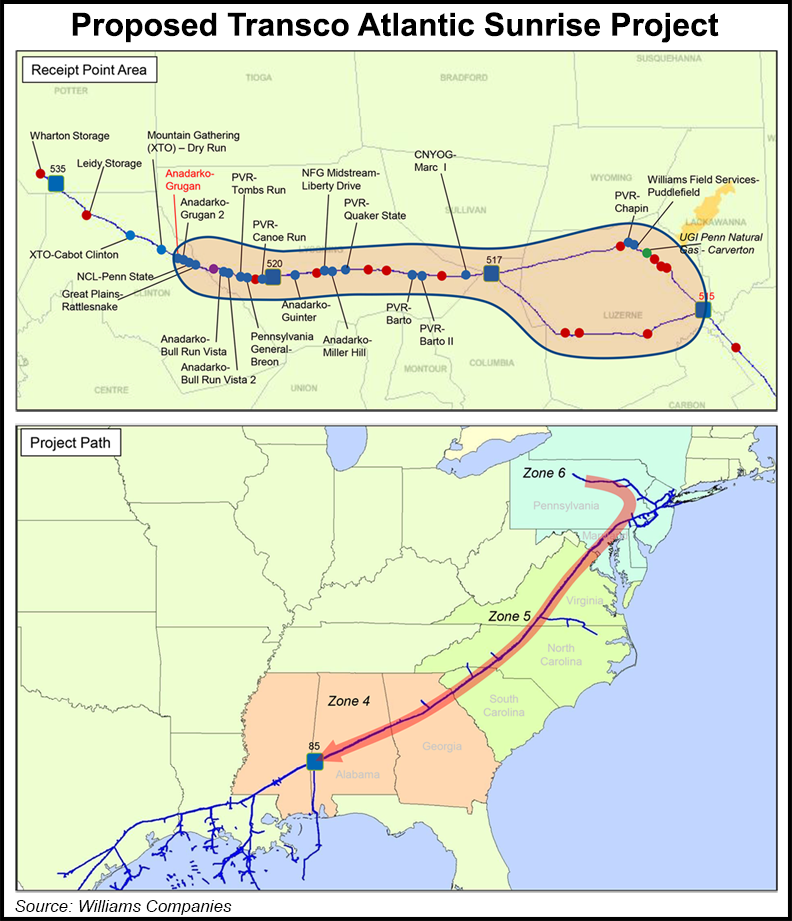Infrastructure | E&P | Marcellus | NGI All News Access
Northeast Marcellus-Focused Atlantic Sunrise OK’d for Partial Service, Adding 400,000 Dth/d
FERC on Monday authorized partial path service for Transcontinental Gas Pipe Line Co.’s (Transco) Atlantic Sunrise expansion project, bringing the 1.7 million Dth/d natural gas pipeline one step closer to completion.

The Federal Energy Regulatory Commission’s order, granting an Aug. 11 request submitted by the company, authorizes Transco to begin service on a number of brownfield portions of the Atlantic Sunrise project by Sept. 1. The authorization covers Transco Mainline A and B replacements, as well as modifications to the existing Compressor Station 185 in Prince William County, VA, and Compressor Station 190 in Howard County, MD.
According to Christopher Stockton, a spokesman for Transco and Atlantic Sunrise parent company Williams, the portion of Atlantic Sunrise authorized Monday would add 400,000 Dth/d of interim service on the Transco mainline from Lancaster County, PA, to as far south as the Station 85 Zone 4 Pooling Point in Choctaw County, AL.
“This interim, partial path firm transportation service will be provided to the participating Project shippers until June 30, 2018,” Stockton said.
Atlantic Sunrise, which received its FERC certificate in February, also proposes constructing approximately 183 miles of greenfield pipe — referred to as the Central Penn Line — designed to connect the northeast Marcellus Shale to Transco’s Station 195 in southeastern Pennsylvania.
Stockton said Atlantic Sunrise is still awaiting final permits from the U.S. Army Corps of Engineers and from the Pennsylvania Department of Environmental Protection before beginning construction on the Central Penn Line. The greenfield construction work is scheduled to begin in the fall, he said.
Williams is targeting a full in-service date in 2018.
Once complete, Atlantic Sunrise would provide significant relief to northeast Marcellus producers, such as anchor shipper Cabot Oil & Gas Corp., that have been hampered by capacity constraints.
Southbound projects like Atlantic Sunrise could also take on more importance given the difficulty of securing regulatory approvals for pipeline expansions traveling through the Northeast and New England.
Williams and Cabot are also backing the embattled Constitution Pipeline, which recently lost an appeal of the New York Department of Environmental Conservation’s decision to deny the project’s water quality permits. The unfriendly regulatory environment in New York has caused headaches for producers, developers and customers in neighboring states in need of new pipeline capacity, an issue explored in-depth in a new series from NGI.
© 2024 Natural Gas Intelligence. All rights reserved.
ISSN © 2577-9877 | ISSN © 2158-8023 |
